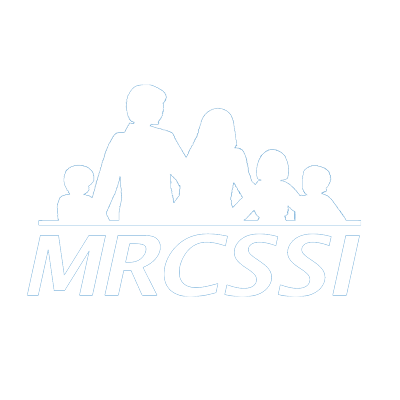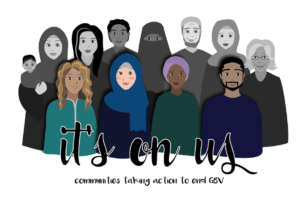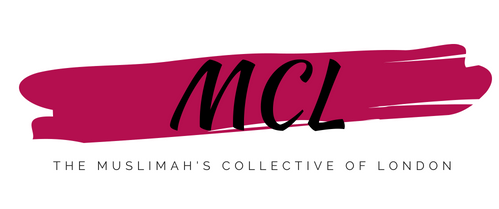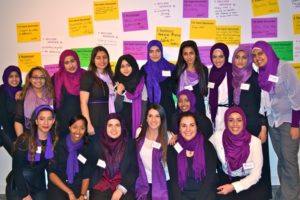MRCSSI develops and leads initiatives that address gender-based violence (GBV) and family violence. We address and respond to GBV and family violence using strategies of community-based education and prevention, community leadership and capacity building.
Our work addressing GBV and family violence is grounded within a framework of intersectional feminism, anti-oppression, and anti-racism. Gender-based violence (GBV) and family violence include many experiences and impacts many identities. Evidence shows that girls and women experience greater violence. We recognize, too, that gender includes a broad range of identities and that gender intersects with race, class, age, ability, sexual orientation, faith, ethnicity, heritage, culture, language and immigration status, as well as other social identities and factors.
Gender-based violence (GBV) and family violence affect all communities, including all faith, cultural, and racial communities. It is a global issue. GBV and family violence can take many forms, including physical, emotional, verbal, financial, sexual and spiritual. Social identities, relationships, culture, and social contexts influence how violence is experienced and understood, as well as access to support and safety.
MRCSSI addresses GBV and family violence using an approach that is culturally meaningful and integrative. MRCSSI’s work to address GBV and family violence in our communities entails:
Community Education
MRCSSI increases awareness and understanding of GBV and family violence, and promotes healthy and equal relationships, through the development of educational materials, the creation and implementation of community campaigns, community conversations and workshops, and programs.
Community Leadership
MRCSSI facilitates leadership opportunities for members of the community – girls and women, men and boys – to take action on addressing GBV and all forms of violence.
Capacity Building
MRCSSI works to strengthen the capacities of community institutions and social service agencies to address and respond to GBV and family violence, provide culturally safe services and supports, and create safety for girls and women.






